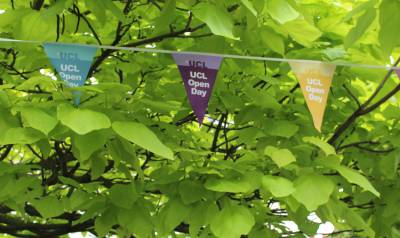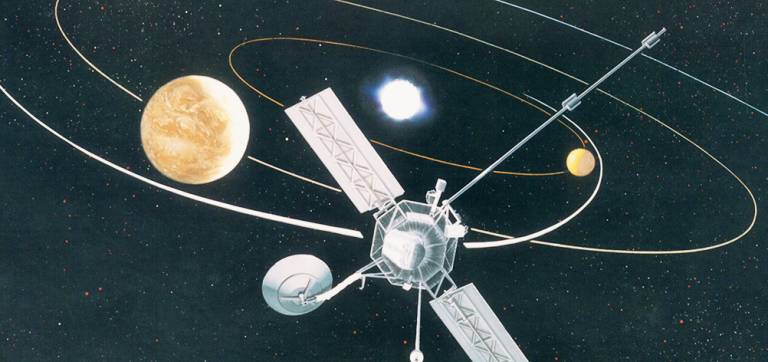UCL research 'among top 10 physics breakthroughs of the year'
13 December 2013
The top 10 breakthroughs in physics in 2013, as judged by Physics World magazine, have been announced. Among them is a recent discovery by a team including UCL's John Morton (London Centre for Nanotechnology and UCL Electronic & Electrical Engineering).
The research was into qubits (quantum bits) - a way of encoding information using quantum phenomena. Unlike normal bits, the fundamental unit of computer memory which can record only 0s and 1s, a qubit can encode 0 and 1 at the same time (much like Schrödinger's Cat is both dead and alive at the same time).
Mastering qubits would open the door to quantum computing, which could revolutionise the way computers are designed and built, but until now, qubits have had to be kept close to absolute zero in order to reliably store information. This study showed how they can be maintained at room temperatures for up to 39 minutes without losing data.
The top 10 breakthroughs identified in the list were chosen by the Physics World editorial team, who reviewed over 350 news articles about advances in the physical sciences published on physicsworld.com in 2013.
The award was founded in 2009. Last year's
winner was the ATLAS and CMS collaborations at CERN for their joint discovery
of a Higgs-like particle at the Large Hadron Collider.
Related links
- Read the news story about the research on the UCL Quantum site
- Read the article in Physics World
- UCL Quantum
- London Centre for Nanotechnology
-
UCL Electronic & Electrical Engineering
High-resolution image
This image can be reproduced freely providing the source is credited
Researcher profile
Science contact
John Morton
London Centre for Nanotechnology
020 7679 2367
jjl.morton@ucl.ac.uk
Media contact
Oli Usher
UCL Faculty of Mathematical and Physical Sciences
020 7679 7964
o.usher@ucl.ac.uk
 Close
Close




